News
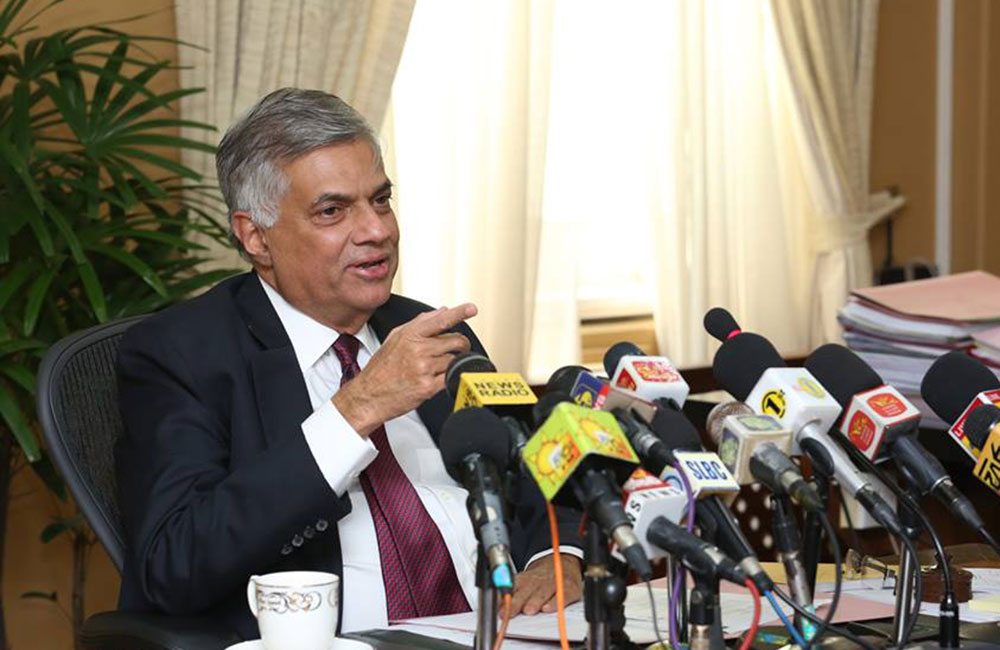
Bank lending rates will be reduced to strengthen SME sector: PM
Prime Minister Ranil Wickremesinghe said bank interest rates will be reduced to strengthen the Small and Medium Enterprise (SME) sector.
The Prime Minister addressing the media at Temple Trees yesterday said the Monetary Board will issue the relevant guidelines and directives in this regard by next week. Accordingly, it has been proposed to reduce lending rates by about 200 basis points.
“In view of the various submissions made by the private sector, especially by the SME sector that lending rates are very high and access to credit is difficult since banks are reluctant to provide temporary overdraft (TODs), the members of the Monetary Board, CEOs of the banks and the representatives of the Institute of Chartered Accountants were invited to a meeting to propose means of addressing these issues,” the Prime Minister said.
A working group comprising a Monetary Board Member, representatives of the banks and the Institute of Chartered Accountants was appointed to submit suggestions to address these specific issues.
“The main aim of these proposals is to ensure that the lending rates across the system reduce in an equitable manner by about 200 basis points instead of only benefitting the major corporate sector. Although no interest rate caps on lending, has been proposed by the working group at this stage, the need for it will be reviewed if the intended reductions do not take place expeditiously” the Prime Minister added.
With these measures it is hoped that SMEs will be developed parallel to the reduction of interest rates. Accordingly, it has been proposed to introduce some limitations to the interest for depositors, the Prime Minister said.
A discussion was held with financial sector officials, Finance Ministry officers and Economic Affairs Ministry officers and with Minister Malik Samarawickreme aiming to seek measures to reduce bank interest rates.”We are going to take decisions in accordance with the report we received in this regard,”the PM said.
The Prime Minister said that it is difficult to develop entrepreneurs and business entities as a result of high loan burden. According to the Prime Minister the country’s economy lost US$ 1,000 million during the 51 day rule of Mahinda Rajapaksa.
“Even though we hoped to reduce interest rates last year, due to the 51 day political crisis, it couldn’t be achieved as the country lost US$ 1,000 million. Due to the losing of US$ 1,000 million.We couldn’t achieve the target but we are in a position to reduce it now,” the PM added.
He further said that all these measures are taken while giving priority to secure the stability of the country’s economy.He added that necessary amendments are done after monitoring this process after about six weeks period.
The following recommendations have been made by the working group including imposing deposit interest rate caps on banks and revise the basis for determining the existing caps on finance companies, providing the banks the ability to define their credit policies to enable advances up to Rs.25 mn granted to the SME sector to be handled in a manner that will provide flexibility to banks to reduce the expected loss impairment charge arising from IFRS 9 for a period up to June 2020 during which time the banks will be required to validate their internal models.
In particular, the banks could have internal policies setting out the criteria for granting and extending TODs so that a mere extension of the facility would not require it to be treated as impaired if there are sufficient underline business reasons for the extension, permit deposits up to Rs.250 million from SMEs (instead of the present limit of Rs.50 mn) to be treated in a manner that will reduce the liquidity requirements required under the liquidity coverage ratio and the banks to design a revolving working capital product for SMEs to replace the TDOs and introduce risk-based pricing instead of applying the unauthorised OD rates.
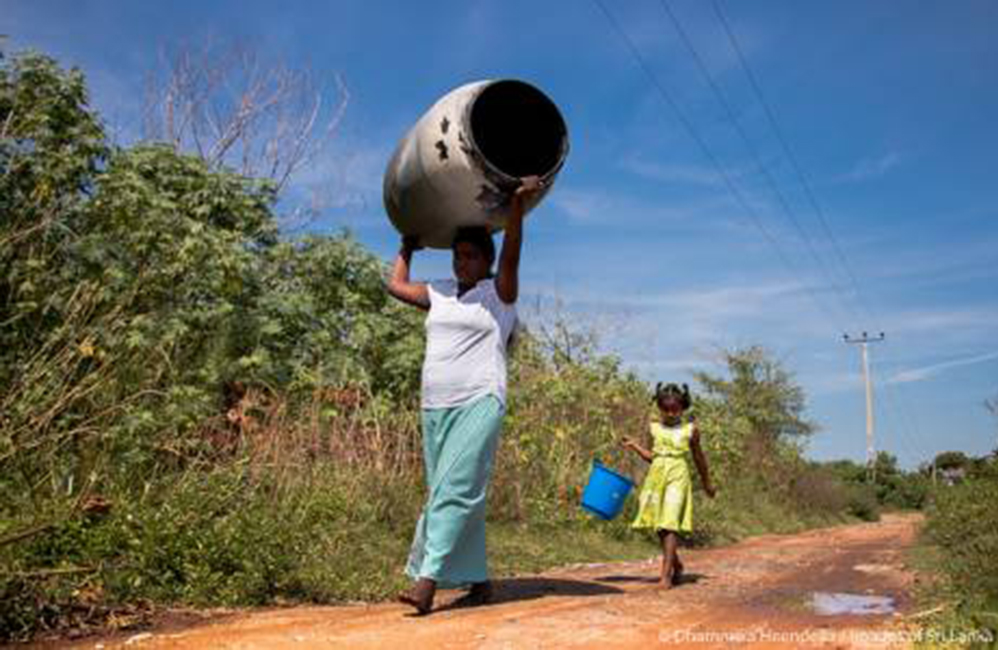
Severe dry weather in Sri Lanka affects over 321,000
(IANS) - Sri Lanka's Disaster Management Centre on Tuesday said that the number of people affected by the severe dry weather conditions prevailing across the island country had risen to over 321,000.
The worst affected districts were Vavuniya and Jaffna in the north, Puttalam in the North Western province and Kegalle in the Sabaragamuwa Province.
The Disaster Management Centre said the lack of rains, especially in the mountainous areas, resulted in a severe water shortage.
Authorities said that they were continuing to send water bowsers into the areas to supply fresh water to the affected families.
The Meteorology Department said hot weather conditions were likely to rise further in the coming days.
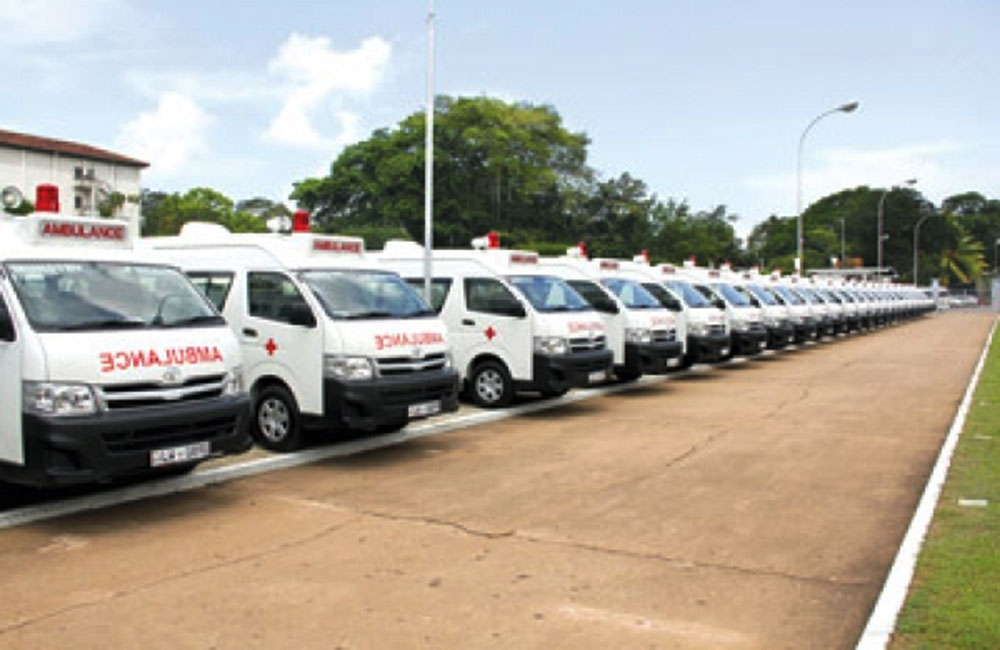
118 new ambulances distributed to hospitals across the country
118 new ambulances were distributed to hospitals across the country at an event held at the Colombo Municipal Council grounds under the patronage of the Minister of Health, Nutrition and Indigenous Medicine, Dr Rajitha Senaratne, today (11).
The distribution of ambulances was the continuation of a programme to distribute a total of 450 brand new Ford and Mercedes Benz ambulances to hospitals through out the country.
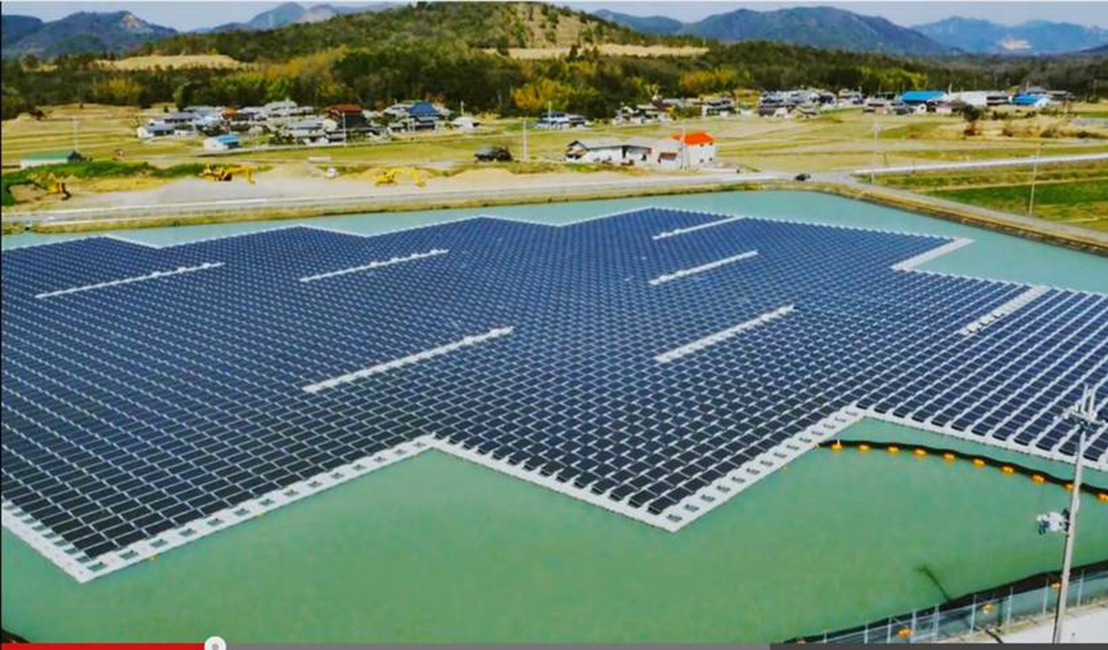
Govt. to set up to a 100 megawatt floating solar power plant in Maduru Oya
The Power, Energy and Business Development Ministry and Canadian Commercial Corporation entered into an agreement to set up a 100 megawatt floating solar power plant in the Maduru Oya reservoir. The agreement was signed in the presence of president Maithripala Sirisena at the Presidential Secretariat yesterday.
The Cabinet of Ministers recently granted approval for the joint proposal made by the President as the Minister of Mahaweli Development and Environment together with the Ministry of Science Technology and Research and the Ministry of Power and Energy to establish floating solar power generation plants on the reservoirs in the Mahaweli Economic Zone as a measure to solve the present power crisis and as a step towards using low cost renewable energy sources.
Accordingly, through these floating solar power plants to be established in several parts of the country, it is expected that 50% of the energy supply would be supplemented by renewable energy by 2030.
The first project will be implemented in the Maduru Oya reservoir using solar panels and batteries which can store electricity with the cooperation of Canadian Solar Inc.
Meanwhile, 10 megawatts of solar power is expected to be added to the national grid by the end of November 2019 while 100 megawatts is expected to be added by the end of year 2020.
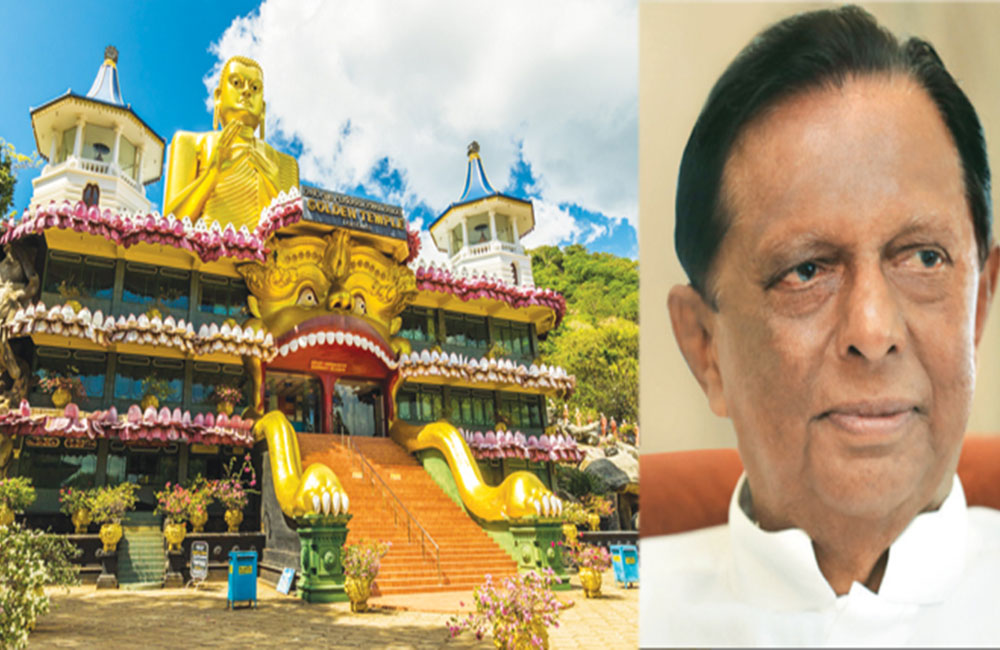
Sri Lanka to launch integrated tourism digital plan
Sri Lanka on Thursday approved a proposal to launch an integrated tourism digital plan to boost the number of arrivals to the island nation.
Sri Lanka's tourism industry is targeting 3 million tourists by the end of the year with a revenue of $5 billion this year. So far this year, Sri Lanka has attracted 740,000 tourists.
Following a proposal by Minister of Tourism Development, Wildlife and Christian Religious Affairs, John Amaratunga, under the plan, an estimated $1.95 million will be invested to further develop the tourism industry and improve Sri Lanka's security image globally, reports Xinhua news agency.
The tourism ministry, in a statement, said this investment would be mainly focused on five high tourism arrival markets,-- India, China, Britain, Germany and France.
Another key objective under this programme is to increase average spending of tourists per day to $210 and increase the employment within the tourism industry to reach 600,000 by the end of 2020.
In addition, steps will also be taken to increase security for tourists travelling to Sri Lanka and to coordinate more joint synergies among airlines flying to Sri Lanka.Measures will also be taken to provide better experiences for tourists.
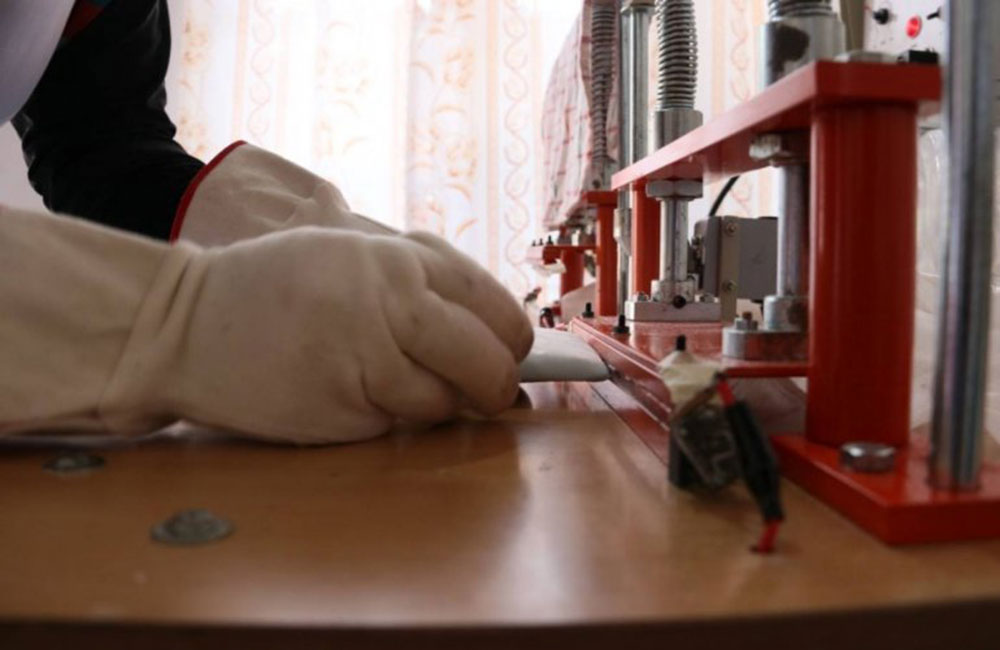
Pad Women: the all-female business easing period poverty in Sri Lanka
Every month, Fathima Rifka used to suffer the embarrassment of rinsing out the rags she used during her period at a public tap - the only source of running water available in the poor Sri Lankan neighbourhood she grew up in.
"You have to stand in line, and then you also have to wash our utensils from the previous day. There is only one source of water and everyone is there," said the 24-year-old.
"We hide it and dry it. But sometimes it doesn't dry properly and the cloth is stiff."
All that changed a year ago when Rifka got her first job making low-cost, organic sanitary towels - something she now teaches other women in her Colombo neighbourhood of Kithulwatte to do.
The business was inspired by Arunachalam Muruganantham, an Indian inventor who developed a way of making cheap pads after watching his wife struggle with rags during her period - the subject of the 2018 Bollywood hit "Pad Man".
At 60 Sri Lankan rupees (35 cents) for a packet, demand for the product, which goes by the name Sinidu meaning soft, is growing.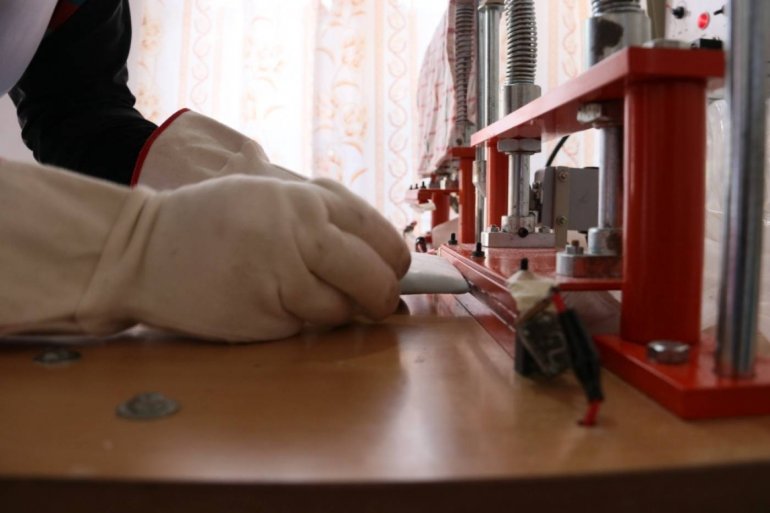
A woman makes a sanitary pad at the Sinidu Factory in Kithulwatte, Colombo, Sri Lanka, on March 13, 2019. Thomson Reuters Foundation/Smriti Daniel
Commercially produced towels typically sell for between 100 and 140 rupees, putting them out of reach of most Sri Lankan women. Imported brands can cost up to 500 rupees.
The women behind Sinidu first started manufacturing in Sri Lanka in January 2018 - the day of the "Pad Man" premiere and set up their first full-fledged factory a year later in Kithulwatte.
They import the wood pulp that Muruganantham developed to make the pads from India, using his design for the simple machines they manufacture on.
Rifka and her colleagues can take what they need and sell the rest, pocketing 15 rupees per packet.
The operation - a social enterprise, or business with a social as well as a commercial aim - was started by the SAARC Chamber Women Entrepreneurs Council (SCWEC), which works to help women in South Asia access business opportunities.
They have just introduced the machines in a prison, where female inmates will be able to make their own pads, and plan to expand the operation to other communities in Sri Lanka, and eventually to Nepal and Bangladesh.
STIGMA
Period poverty has hit global headlines in recent years, with statistics showing that even in a wealthy Western country like Britain, one in 10 girls have been unable to afford sanitary products.
This year Meghan Markle became the first British royal to speak out on the once taboo issue, saying girls were missing school "because no one wants to talk about it or has what they need".
In Sri Lanka, the problem is particularly acute because sanitary products are so heavily taxed - until last September, the levy on imported pads was more than 100 percent.
It has since been reduced to about 63 percent and Sri Lanka's finance minister, Mangala Samaraweera, told the Thomson Reuters Foundation he was looking into how taxes on sanitary products could be reduced further.
"Access to affordable female hygiene products is certainly expected to have an important positive impact on girls' school attendance and thus educational outcomes," he said.
"It will also facilitate fuller participation of women in the economy."
But Anuki Premachandra, head of research communication at The Advocata Institute, an independent policy think tank, said the issue still wasn't being given the importance it deserved.
"People are enraged about the cost of carrots, but when it comes to taxes on sanitary napkins, they dismiss it as a women's issue," she said.
Last year New Delhi abolished the sales tax on sanitary products although other South Asian countries still tax them.
But for women in the region, the problems go beyond cost.
In parts of India and Nepal, cultural taboos mean menstruating women and girls are banished from their homes at night, putting them at risk. Several have died in Nepal in recent years.One in three girls in South Asia miss school during their periods and in Sri Lanka, the figure is even higher.
A 2015 survey of adolescent Sri Lankan girls conducted by the United Nations children's agency UNICEF and the government found more than half had to miss school when they had their period.Another U.N. study found 60 percent of teachers in Sri Lanka thought menstrual blood was impure.
"Women complain about rashes when using the normal pads. Some have other illnesses related to periods, but there is a lot of stigma. So it's a challenge and we don't speak about it," said Rifka, who sold 100 packets this month."I have already started selling these pads and there is a lot of demand. Many women come back to me and tell me how good it was. They all want to buy more."
Smriti Daniel I Thomson Reuters Foundation
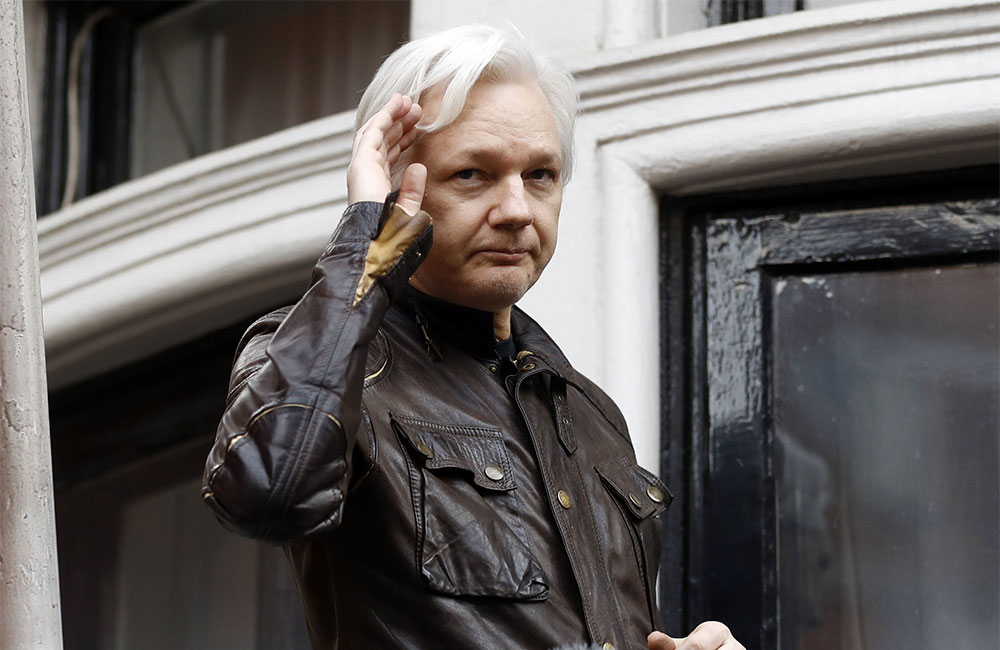
Police arrest Julian Assange at Ecuadorian embassy in London
Police entered the Ecuadorian embassy in London Thursday morning, arresting Julian Assange and bringing the WikiLeaks founder's seven-year stint there to a dramatic close.
Metropolitan Police said in a statement that he was "further arrested" on his arrival at a London police station on behalf of United States authorities, who have issued an extradition warrant.
The UK Home Office confirmed the extradition request in a statement, adding, "He is accused in the United States of America of computer related offences."Officers made the initial move to arrest Arrange after Ecuador withdrew his asylum and invited authorities into the embassy, citing the Australian's bad behavior.
Assange was initially detained for "failing to surrender to the court" over a warrant issued in 2012 and was in custody at a central London police station, police said.
He will appear before Westminster Magistrates' Court in London as soon as is possible, police added.
The whistleblower has been holed up at the embassy, yards from the Harrods department store in Knightsbridge, since 2012, when he was granted asylum as part of a bid to avoid extradition to Sweden, where he was facing allegations of sexual assault.
The Swedish case has since been dropped, but Assange feared US extradition due to his work with WikiLeaks and remained in the embassy. He has repeatedly denied any wrongdoing.
Ecuadorian president Lenin Moreno said in a video statement Thursday that his country withdrew Assange's asylum due to his "discourteous and aggressive behaviour," "the hostile and threatening declarations of his allied organisation against Ecuador" and "the transgression of international treaties."
Assange "violated the norm of not intervening in internal affairs of other states," Moreno said. "The most recent incident occurred in January 2019, when WikiLeaks leaked Vatican documents. Key members of that organisation visited Mr Assange before and after such illegal acts," he added.
In July 2016, WikiLeaks published nearly 20,000 emails from Democratic National Committee staffers that appeared to show the committee favoring presumptive Democratic nominee Hillary Clinton over Bernie Sanders during the US presidential primary.
Assange then told CNN's Anderson Cooper that the email release was timed to coincide with the start of the Democratic National Convention. A US court filing in November 2018 inadvertently revealed US government efforts to criminally charge Assange.
Alan Duncan, the British Foreign Office's Minister of State for Europe and the Americas, thanked Ecuador for lifting Assange's asylum.
"It is absolutely right that Assange will face justice in the proper way in the UK. It is for the courts to decide what happens next," Duncan said in a statement.
"We are very grateful to the Government of Ecuador under President Moreno for the action they have taken," the statement continued.
"Today's events follow extensive dialogue between our two countries."
On April 4, WikiLeaks tweeted from its verified account, "BREAKING: A high level source within the Ecuadorian state has told @WikiLeaks that Julian Assange will be expelled within "hours to days" using the #INAPapers offshore scandal as a pretext--and that it already has an agreement with the UK for his arrest."
In a statement released Friday, Assange's own legal team said that expelling him from the embassy would "violate international refugee law."
"It will be a sad day for democracy if the UK and Ecuadorean governments are willing to act as accomplices to the Trump administration's determination to prosecute a publisher for publishing truthful information," the statement read.
The Ecuadorian Foreign Ministry denied the rumors in a statement, calling them "fake news" and adding that the allegation of a deal with the UK "misrepresents reality."
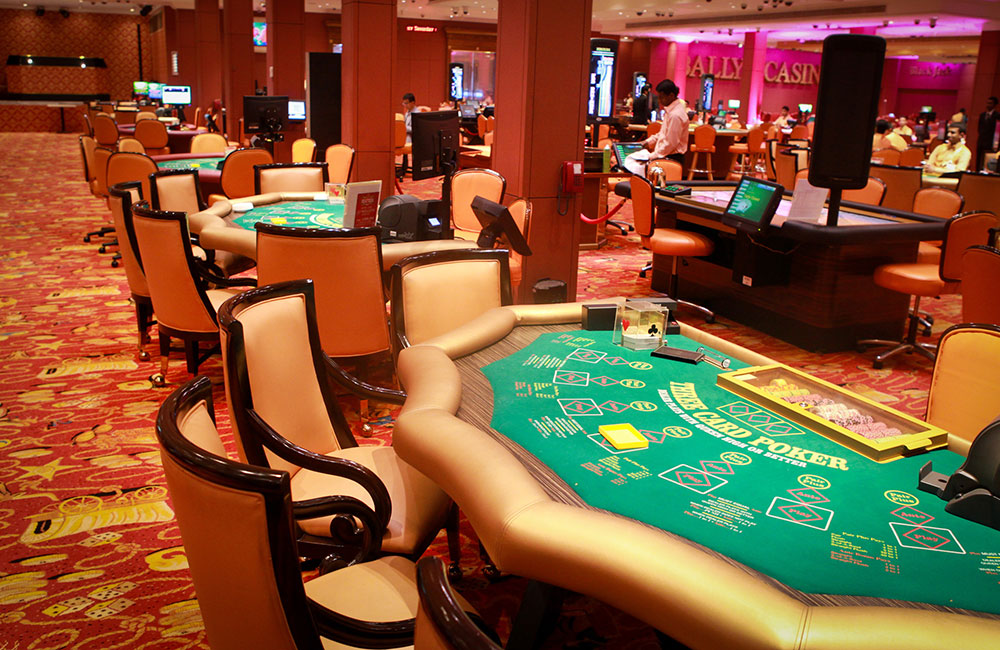
$50 casino fee for Sri Lankan nationals
After initial confusion, the Sri Lankan government clarified that only local visitors to Sri Lankan casinos will have to pay a $50-dollar entrance fee.
Finance Minister Mangala Samaraweera said the measure is in place to prevent locals from gambling, and the country instead wants to focus on tourist dollars. Some countries in the region do not permit their own citizens to enter casinos unless they are employees.
The decision came as part of a wider group of measures from gambling authorities in the country. Sri Lanka also announced licensing fees for casinos would double to $2.2 million and a 15% tax on revenue.
These measures came into effect on April 1.
The country still has some other strict regulations on the book, including a ban on gambling on cricket. Samaraweera stated the government is looking to tighten up regulations in order to keep up with the country’s anti-money laundering laws.
Sri Lanka has been regulating gambling since 2010 in specialized zones designated for legal gambling.
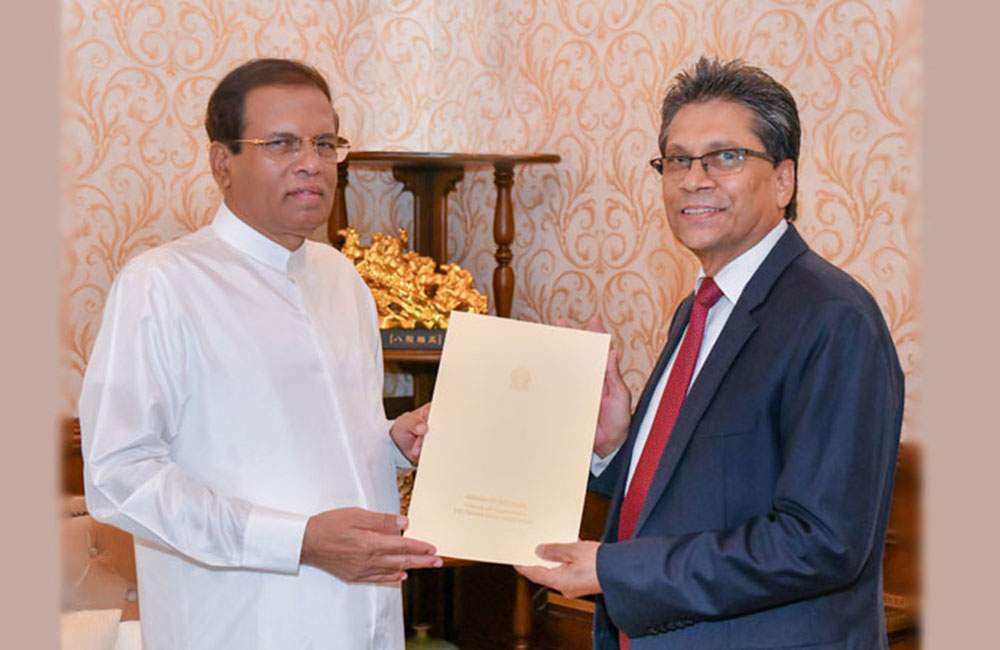
Mangala Yapa appointed as new BOI Chairman
Mangala P.B. Yapa was appointed as the Chairman of Board of Investment (BOI) by president Maithripala Sirisena, the President’s Media Division said.
Yapa received his letter of appointment from president Sirisena at the latter's official residence this morning.
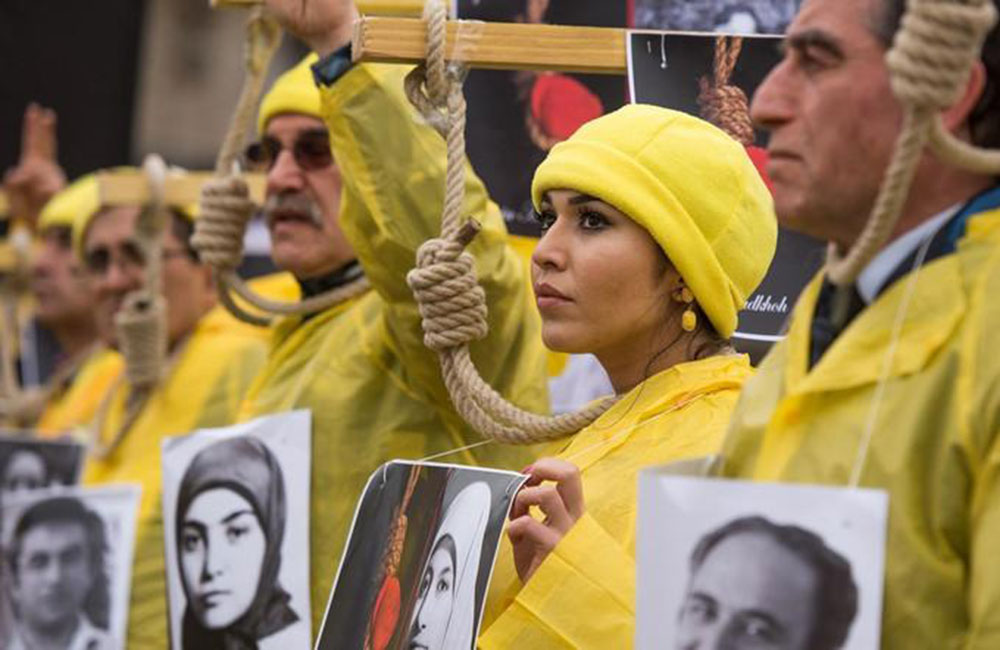
Global executions at lowest level in a decade
Executions fell worldwide by nearly a third last year to their lowest levels in at least a decade, but several countries recorded a rise, Amnesty International said Wednesday.
Use of the death penalty dropped in Iran – by an eye-popping 50 per cent, following a change to its anti-narcotics laws – Iraq, Pakistan and Somalia, the rights group found in its annual review. But it rose in Belarus, Japan, Singapore, South Sudan and the United States, while Thailand resumed executions for the first time in a decade and Sri Lanka threatened to follow suit.
"Despite regressive steps from some, the number of executions carried out by several of the worst perpetrators has fallen significantly," said Kumi Naidoo, Amnesty International's Secretary General.
He added the "dramatic" drop globally proved that "even the most unlikely countries are starting to change their ways and realise the death penalty is not the answer".
"This is a hopeful indication that it's only a matter of time before this cruel punishment is consigned to history, where it belongs," Mr Naidoo said.
In total, death penalty figures fell around the world from at least 993 in 2017, to at least 690 last year.
Amnesty's count excludes China – the world's top executioner – where the numbers are classified as a state secret. The organisation estimates thousands of people are sentenced to death and executed there every year.
Iran (253), Saudi Arabia (149), Vietnam (at least 85) and Iraq (at least 52) were the other countries that resorted to the death penalty most in 2018.
Vietnamese authorities' decision to release figures for last year was "unprecedented" for the southeast Asian nation, Amnesty noted. Elsewhere Japan, Singapore and South Sudan reported their highest levels of executions in years.
Mr Naidoo said these three countries "now form a dwindling minority" and challenged them "to act boldly and put a stop to this abhorrent punishment".
Amnesty also noted concern over a sharp spike in the number of death sentences imposed in some countries – particularly Iraq and Egypt – over the course of 2018 but its annual review found the global trend towards abolition of the death penalty had gathered steam.
Burkina Faso adopted a new penal code effectively banning executions, while Gambia and Malaysia both declared an official moratorium.
Meanwhile, courts in the US state of Washington declared the death penalty unconstitutional there.
Amnesty highlighted a December vote by the United Nations General Assembly that saw 121 countries support a global moratorium on the death penalty, with only 35 states opposed.
"Slowly but steadily, global consensus is building towards ending the use of the death penalty," Mr Naidoo said.
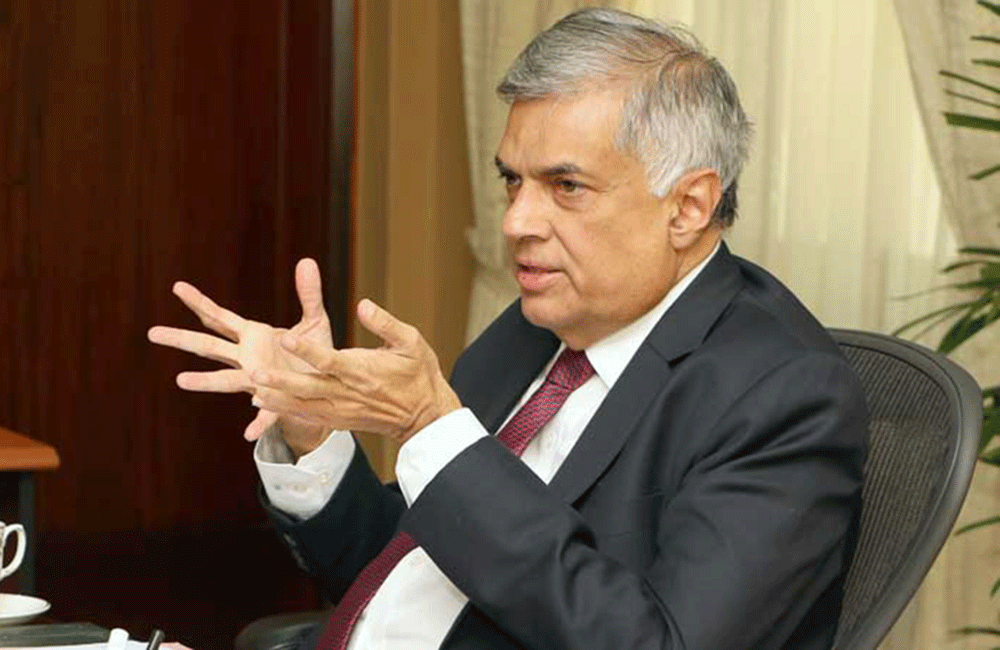
PM to head ministerial committee to resolve power issue
A five-member ministerial committee headed by Prime Minister Ranil Wickremesinghe has been appointed to resolve the current power crisis.
Ministers Mangala Samaraweera, Ravi Karunanayake, Kabir Hashim and Sagala Ratnayaka round up the five member committee.
The committee was appointed to provide recommendations with regard to short-term, mid-term and long-term measures on resolving the crisis.
The proposal to establish a committee was put forward by Power and Energy Minister Ravi Karunanayake which was approved by the cabinet.
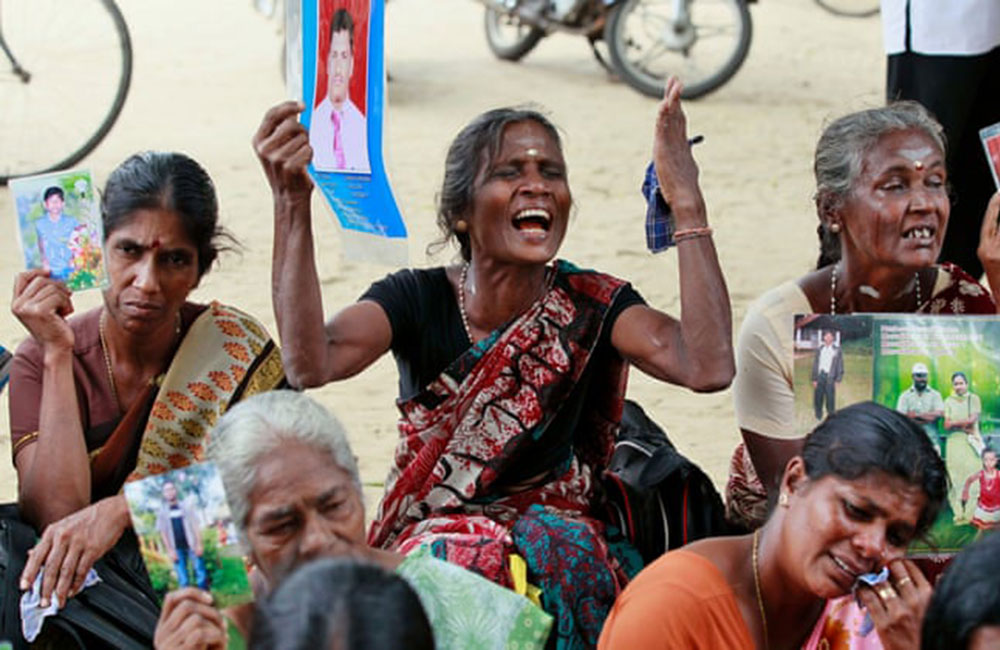
Global Tamil Forum calls for victim-centric approach in coordination with UNHRC
The statements made by the Sri Lankan delegates at the UN Human Rights Council (UNHRC) 40th session and again within a week after returning from Geneva are highly disappointing, The Global Tamil Forum (GTF) said in a statement today.
"The Global Tamil Forum finds this disconcerting, considering Sri Lanka has just taken the positive step of co-sponsoring the HRC Resolution 40/1. The statements dealing exclusively with macho nationalism and inviolable sovereignty; constitutional scapegoats; and even misrepresentation about private meetings with high-ranking OHCHR officials were clearly aimed at pacifying the Sinhala hard-line elements.
The merits of the UNHRC processes, the disappointments expressed by most countries regarding the pace of progress, and the failure to date to make real impact on individual victims and their families did not deserve any mention," GTF said.
The core of the argument presented by Foreign Minister Marapana at the Human Rights Council centred on the Supreme Court resolving the constitutional crisis late last year and how that is giving credence to the independence of Sri Lanka’s judiciary. The peaceful resolution of that crisis is welcome, and it indicates improvement from previous years in the objectivity of the Supreme Court when it concerns constitutional matters. However, the Sri Lankan judiciary and other key institutions administering justice on serious crimes committed during the war, perhaps with the connivance of some who were associated with the government, is altogether a different proposition.
Speaking in the Sri Lankan Parliament after the passing of the Resolution 40/1, the Foreign Minister again ruled out the possibility for foreign judges, saying “Without legislation, we cannot have foreign judges sitting in our judicial system deciding the capability of our citizens. Even if we bring in such legislation, the Supreme Court will strike it down.” While his constitutional interpretation has been questioned by many, the Minister was oblivious to the fact that Sri Lanka co-sponsored the UNHRC resolutions three times, and the resolutions unambiguously specified the importance of including “Commonwealth and other foreign judges” in a Sri Lankan judicial mechanism, not as mere observers or advisers, but in full judicial capacity.
It is an undisputable fact that ten years after the end of the war, not a single family affected by enforced disappearance has been able to ascertain the truth, or received justice or reparation, and no one has been punished for the war crimes committed. Even in the emblematic cases such as – the killings of 5 students in Trincomalee; the massacre of 17 aid workers in Muttur (both in 2006); and the murder of the high-profile journalist Lasantha Wickrematunge (2009) – there has been no judicial outcome more than a decade after. If the past is of any indication, there is not a single case or outcome to support the independence and impartiality of the judiciary when serious cases of human rights violations are heard – particularly when the perpetrators are security forces and those linked to the establishment, and the victims are Tamils.
There is no doubt among the victimised Tamil community and the human rights bodies that Sri Lanka lacks the capacity will and laws to criminalise atrocity crimes and provide witness protection. Hence credible international participation is vital in any worthy judicial process.
Insisting continuously on a purely domestic court and judges will only lead to increased calls for an international judicial mechanism to address criminal accountability.
High Commissioner Bachelet was accurate when she addressed the Human Rights Council, stating “Sri Lanka’s process of implementing human rights reforms has been delayed due to the lack of common vision among the country’s highest leadership.” The deplorable statements by Sri Lankan officials during and after the UNHRC sessions are consistent with this lack of vision and leadership that is symptomatic of Sri Lanka’s troubled transitional justice process.
There never was a serious attempt to incorporate in the national dialogue the importance of accountability, the need to end impunity and the urgency of constitutional reforms to achieve genuine reconciliation, peace and prosperity benefiting all communities. A comprehensive plan to implement all aspects of the UNHRC resolutions in a timely and synchronised manner was never developed. Instead, it was always an ad hoc politicised process to keep the international community at bay, while no serious step was taken fearing it would result in political fallouts. At times it even appeared that imaginary opposition by extremist elements was used as cover to mask lack of political will. Justice for the victims and their families was never a serious concern.
Almost a decade has passed since the war ended and it is unconscionable to let the victims remain in limbo and suffer. The access to truth and justice – a basic universal human right – should no longer be denied to the victims, irrespective of their origins and backgrounds. Rather, a victim-centric approach and an action plan arrived in coordination with the OHCHR, along with full utilisation of Technical Assistance provided by UNHRC and other UN agencies is vital, to regain the momentum to prevent failure of the transitional justice agenda.
GTF further said that they fully concur with High Commissioner Bachelet’s call that “the Sri Lankan Government should now refocus its efforts on fulfilling its obligation to provide justice and accountability and honour its commitments to establish the truth about what happened and to promote reconciliation,” and would like to reaffirm its commitment to assist such a process that will lead to true accountability, political resolution and closure to the emotional sufferings of the surviving victims.
"Only such measures will guarantee non-recurrence of conflict and foster durable peace for all peoples of Sri Lanka," the GTF added.
Page 330 of 510